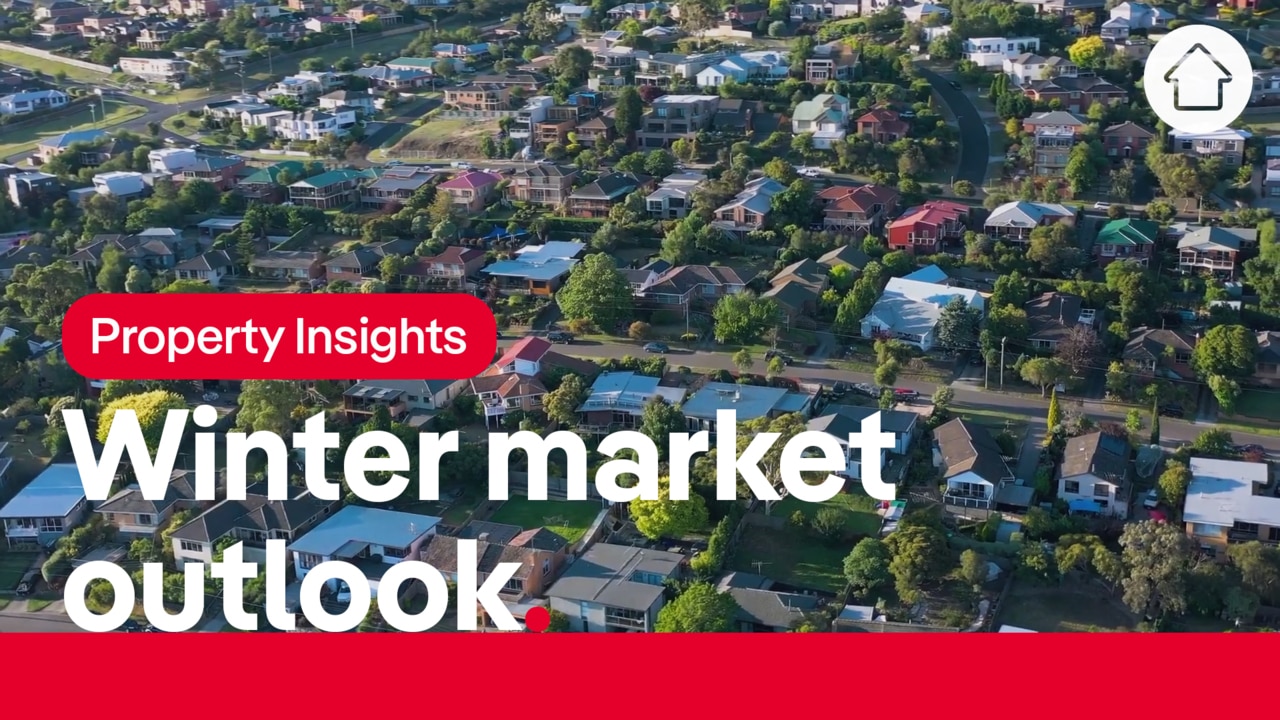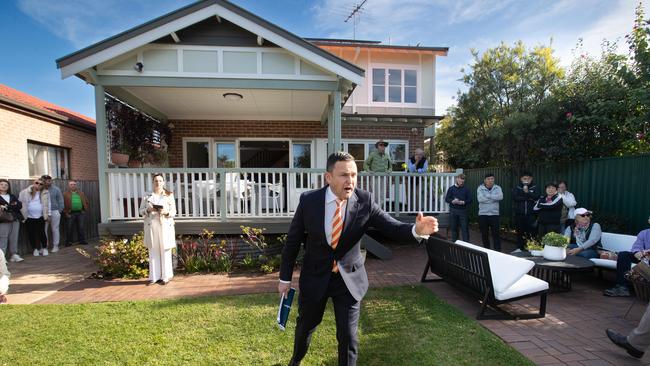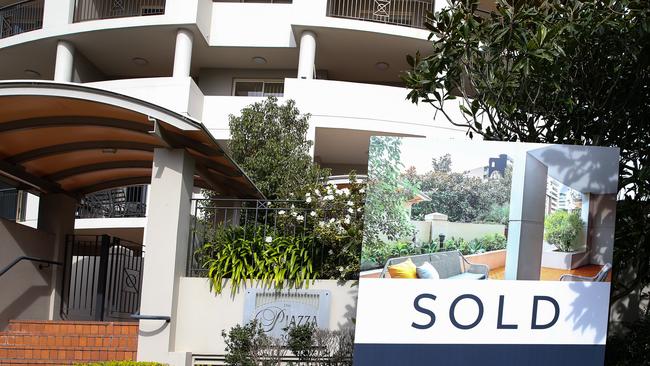‘Barking up wrong tree’: biggest mistake homebuyers are making
Experts have warned recent homebuyers have been coming into real estate price negotiations with one wrong assumption that’s sabotaging their hopes of getting a good price.

Property
Don't miss out on the headlines from Property. Followed categories will be added to My News.
With home values off the post-pandemic boil, purchasers could be forgiven for feeling there’s a buyer’s market brewing.
However, low supply across most of the country, and still plenty of demand, means house hunters aren’t necessarily in the driver’s seat. Experts warn buyers shouldn’t hold their breath for a bargain, but rather take the time to research where the good deals are before heading to the negotiation table. Here’s what they said buyers should consider:
Study the state of play
Cate Bakos, Melbourne-based buyer’s agent, said successful negotiators understand the multi-speed housing market and can identify where opportunities lie.
“I’m still experiencing mild buyer’s market conditions for stock that would typically appeal to first home buyers and I’m certainly seeing strong buyer’s market conditions favouring those who have an appetite for serious renovation or knockdown projects,” she said.

While home values are down from their pandemic peaks, most markets have hit their price correction trough and are creeping back up again. Therefore, buyer’s agent Michelle May said bargain hunters could be disappointed.
“There are always doomsayers who say the market is going to crash. In the history of Australian property we’ve had peaks and troughs, but we’ve never had a doomsday. Overall, we still have a shortage of housing, more than 400,000 people are soon to be moving to Australia, builders are going broke and there’s not enough available land.”
Work out where you stand
The best negotiating environment – for both the buyer and the seller – is an open and honest one.
“If the agent is willing to conduct a transparent negotiation process, buyers will have a better grasp of the seriousness of their competition,” Ms Bakos said.
Auctions are the ultimate transparent sale platform, as buyers see who they’re up against, but for private treaty sales savvy purchasers should do a little digging.
“I recommend buyers ask specific closed questions of their agent. For example, How many buyers are you dealing with on this sale? or How many building inspections have been conducted? While we can’t guarantee every agent will tell the truth, these specific questions usually glean good intel,” she said.
Ms May agreed the best negotiation tool is knowledge.
“Research each property. Some have been for sale several times; maybe they were on the market last year with a different agent and the seller didn’t achieve what they wanted. Sometimes vendors have had unrealistic expectations but now realise the market has moved,” she said.
Buyers also shouldn’t underestimate the power of knowing a vendor’s motivation.
“As interest rate rises continue to hit us there are going to be distressed sellers. They unfortunately have to sell and move on, so they’re more inclined to negotiate. But if it’s empty nesters who have little to no mortgage, they may just be testing the waters on price and your attempts at negotiating could have you barking up the wrong tree.”
Consider the trade offs
Buyers willing to take on those properties which are currently out of favour, could unearth more negotiating power.
“People are scared to take on renovations since Covid because of the unknown costs, the time and headache of dealing with council. So if you’re in the market for a house, those would be the kind of properties you can actually get better value for money at the moment. But I wouldn’t say it’s necessarily a buyer’s market for those either,” Ms May explained.
Patient purchasers looking for an apartment could find wiggle room on price for those properties with a long term tenant in place.
“Because of rising rents, many buyers want something move in ready. If you have the luxury of living with a flatmate or family until a unit is ready next year, but you can purchase now, then potentially you could get yourself a better deal as there’s definitely less competition on those kinds of properties,” Ms May added.
Don’t take the low road
There’s no harm in submitting an offer lower than the asking price, according to Ms Bakos, but buyers should feel confident the agent will be willing negotiate.

“If the agent has specifically told buyers they’re calling for best and highest offers, that’s a warning against a low-ball offer. If they advise a buyer they have competition in the market, it’s risky to assume they’re bluffing,” she said.
Ms Bakos added that buyers hoping for a bargain on their dream home are also doing themselves a disservice.
“Listening to the negativity and assuming the market is still falling is naive – and it’s costing buyers who are still low-balling with their offers. By the time they wise up to the improved conditions, they may be priced out of their market.”
Be ready to negotiate
Negotiating with confidence comes with knowing your ultimate price, especially in a rising rate market.
“Those who leave it to the last minute to get their finances sorted risk being pipped at the post. I’m finding a lot of my solid competition numbers decline due to finance. Making offers with finance clauses may feel like a safety blanket for some buyers, but credit-approved confident buyers are easily beating them in the negotiation stakes,” Ms Bakos said.

Understanding when to keep going, and when to walk away is also key said Ms May.
“We talk to clients about their maximum ‘walkaway price’ – the number where if someone pays $1000 more you’d either kick yourself, or would be happy for them to have it. Then consider your hard limit – that price you’d hate to pay, but you would in order to secure your dream property. It’s all about being fully prepared before beforehand.”
TIPS TO TAKE TO THE NEGOTIATING TABLE
Before even getting to the negotiation stage preparation is the best tool you can have in your arsenal:
• Obtain finance first: Without getting credit-assessed and having a lenders pre-approval in your hand you’re not going to know how much you have to negotiate with in the first place.
• Plan of attack – Have a clear strategy in mind so you know your search suburbs and your ultimate house hunting criteria.
• Do lots of homework: Without a solid understanding of recent past sales in your target neighbourhood you won’t be able to negotiate with confidence or recognise an overpriced listing.
• Ask plenty of questions: Don’t be afraid to question agents about a home’s history and its vendor’s motivation. Once you know why it’s for sale (and how long it’s truly been on the market) you know where you stand.
• Move with confidence: If you’ve done your research and due diligence you’ll be able to proceed to signing contract when you find a property ticking all your ‘must have’ boxes. That preparation also means having a solicitor on hand to review the documents.




